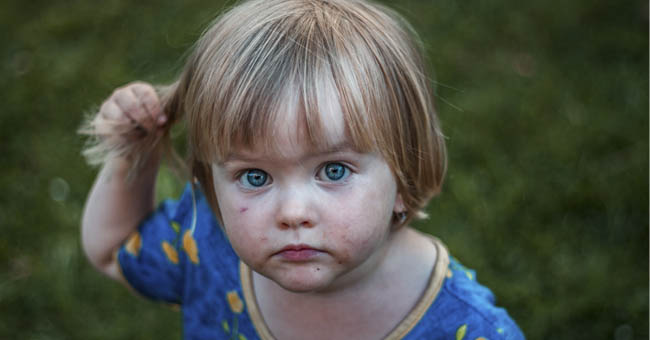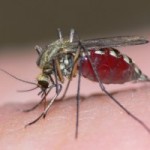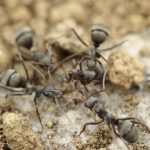 Wendy Hunter, MD
Wendy Hunter, MD
Pediatrician | Mom | Founder of BabyScience.info
Twitter | Facebook
Yes, you should be worried about mosquitos transmitting Zika. And you should be just as worried about dengue fever, yellow fever, chikungunya, Japanese encephalitis, West Nile, and several other diseases. About 700 million people are infected every year around the world and some get really sick. Even if you don’t get sick, bug bites are easily infected by dirty kid hands scratching their itch. Plus, bug bites are just annoying. Here’s how to avoid them:
Step 1: Understand the enemy
Mosquitos lay their eggs in little insect “nurseries” like birdbaths, discarded cups, and old tires. Even small areas of standing water provide a soup of organisms they can feed on – it’s like mosquito Enfamil. Once they grow up, all mosquitos feed on plant nectar. However, females need protein and other nutrients found only in blood so that they can produce new eggs. So mosquito mothers-to-be have special chemical and heat sensors to help them search out carbon dioxide and octenol in our breath and sweat. Every person has a unique smell signature that make some people more fragrant to a mosquito than others. (Ooh..is that Octenol no. 5 you’re wearing?) There’s nothing you can do to change your scent – not even eating garlic, onions or other malodorous foods, so don’t bother trying.
How do bugs bite?
Once a female mosquito locks on to your smell, their mouthparts bite through your skin and their hypopharynx wiggles around until it finds a capillary. It punctures through the wall of the capillary and pumps blood out and saliva in. Their saliva keeps our blood from clotting and makes most of us itch (but not everyone – some people do get bit, but they don’t react to mosquito saliva).
Step 2: Protect yourself
Reduce the number of mosquitos in your area by getting rid of any standing water in your yard (tarp folds, kiddie pools). And protect your family from getting bit. Most species of mosquitos feed at dawn or dusk, so that’s when you need to stay inside or use insect repellent. For young kids, use an insect net over their stroller. Cover as much skin with clothing as is comfortable and try hats with insect screens. If you plan to be outside, there are lots of insect repellent options.
Step 3: Repel the critters
Insect repellents work by blocking insects’ sense of smell; some even confuse their sensors to make your good scent smell bad.
Permethrin – effective against mosquitoes, flies, ticks, and chiggers – Permethrin is not actually a repellent. It causes nervous system toxicity in insects. So they either leave or stay and die. Permethrin can only be used on clothes.
DEET is very safe and the most effective repellent, it can be safely used in pregnancy and in babies after 2 months. However, DEET can damage plastic and synthetic fabrics (e.g. rayon and spandex ) so be careful around your $98 yoga pants! DEET is available in products up to 70% concentration, but 30% is plenty. If you’re worried about toxicity, there are microencapsulated formulations (e.g. 3M Ultrathon), which increase repellency while reducing skin absorption.
Picaridin is plant-derived. The benefit is that it is odorless, non-sticky, and non-greasy – so kids won’t complain when you smear it on. It is available in several strengths, but only the 20% solution comes close to the effectiveness of DEET, although it doesn’t last as long so will need to be re-applied frequently. It also does not irritate skin, stain fabrics, or degrade plastics. So you can safely demo its use on Lego mini-figures.
Oil of lemon eucalyptus (PMD (P-menthane-3,8-diol) – another plant-derived ingredient. PMD hasn’t been tested under age 3, although it has been shown to be safe in older kids, however it is approximately one-half as effective as DEET. So the 10% kind is useless.
BiteBlocker (BioUD (2-undecanone), is a tomato-derived repellent – it isn’t well tested for effectiveness, but is probably comparable to 7.5% DEET which is not so great. I’d stick to a better-tested product for now since this doesn’t have any advantage.
Citronella and botanical oils like sandalwood, geranium, and soybean have some repellent action but not enough to keep you from getting bitten so they aren’t worth trying if you actually want to avoid bites. Similarly, wristbands and Avon Skin-so-soft just aren’t effective enough.
The bottom line
By far, the best way to protect yourself and your children is by wearing clothes impregnated with permethrin and using DEET on your exposed skin.
Want a list of tips?
- Use just enough repellent to lightly cover the skin
- Apply to exposed skin, clothing, or both, but not under clothing and not to kids’ hands because they WILL rub it into their eyes
- A thin layer can be applied to the face
- Wash with soap and water when the repellent isn’t needed anymore
- If using sunscreen and repellent, apply sunscreen first and repellent after. It is better to use separate sunscreen and repellent products, as sunscreen generally needs to be reapplied more frequently than repellent.
This post was originally posted on babyscience.info on 8/3/2016.






2 Comments on “How to Really Prevent Mosquito Bites”
Thanks for great tips on how to prevent Mosquito bites. WE started using Dynatrap. hope it helps.
Thanks for very helpful article. Going to try these tricks.
This is really helpful information. Every time we go outside my one year old gets eaten alive. We had our yard sprayed twice this summer but can’t spray it right now, so this information is great!
Glad you found this helpful, Allison!
Great info. Really helps. I will pass on this info to friends who have children.
really interesting article. knew some things but learned other things to help keep away the mosquitoes.
Extremly helpful blog post. Mosquito’s are not only a pain but also dangerous in some parts of the world. My youngest and I seem to get bitten most and I will definitley be getting some DEET in to keep them at bay. At the very least the bite is uncomfortable and itchy, at the worst can cause a whole host of health problems.
This was great. A lot of great information here. When I was a child they loved me! I would end up scratching and causing the bites to get infected. I guess my smell has changed since I’m older and a Nana now! lol But we do have protect our little ones. Thanks so much. Great tips.
Lisa, that’s lucky that they don’t go for you so much anymore!
Great tips and very helpful for people with little kids as well!
This was very informative and insightful. Thank you.
Glad you found this helpful, Melissa! We learned a lot from Dr. Hunter’s post too!
Your recommendation seems harsh. We opted for a more kid friendly, and safe, option. I am not sure of the exact contents but my wife mixed it up and it works great for mosquitos and ticks. Smells a bit like vinegar (because it contains it), but other than that it is great.
Hi! Thanks for the comment. Harsh it what way? There is lots of information and many suggestions in this post. Glad you all found something that seems to be working too!
My son gets huge welt-like mosquito bites when he’s bitten. These are some great options for protection! Thank you!
Hope it helps, Corry!
I will try some of these repellants, never enen thought of some of them. We will also make a round outside just to make sure no standing water exsists. Thanks alot!
I’ve never heard of some of these options to repel mosquito bites. I will have to try some of them since my daughters and i react so badly when we do get them!
Never heard of some of these options for repellants especially Picaridin and Permethrin. Now for the hunt of where I can find them. I’m thinking maybe a Dicks or natural vitamin store.
Very interesting information, I wasn’t aware that mosquitos are attracted to your natural smell. Although not as strong as DEET I am going to be looking for products that have at least 20% Picaridin in it
Living in Florida near a lake, we dread mosquito season. Thanks for the great info!
Thanks for the great tips and ideas you just cant be too careful.
You’re so right, Kathy! Thanks for the comment & glad you like the post!